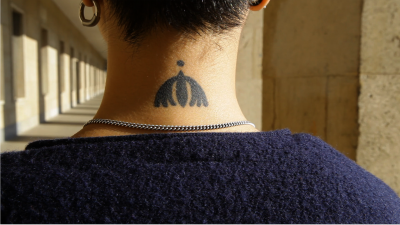Artist Note
The first thing that came to my mind when Ms. Seoyoung - the planning director at Radical Place - proposed the project, was this island called Berlin. The great number of immigrants and foreigners unlike in other German cities, when I first visited Berlin five years ago. Their varied conversations and tones. The streets that still bear the traces of West and East Germany, and the primitive space that is constantly under construction somewhere, but cannot be concealed with what we call development.
Ms. Seoyoung and I exchanged notes on each of our perspectives regarding Berlin over multiple discussion sessions. I was interested in the issue of language and cognition, and the future of both Berlin and Korea (with regard to unification). Ms. Seoyoung was pondering on the connection between the space of Berlin and Korea, and the special characteristics of the former city.
One day, Ms. Seoyoung proposed the idea on Borderline Figures, and I grew fascinated with Professor Du Yul Song¡¯s concept of borderline figures, the idea of borders, and those who do not belong to categories designated in societies that operate under a given standard. Ms. Seoyoung introduced me to East Germany¡¯s history and organizations such as Stasi, and I conducted research on people like Professor Du Yul Song, and those who had been excluded by the national government. As we moved on with the project, Ms. Seoyoung tried to see Berlin¡¯s situation under the light of Agamben¡¯s State of Exception - I agreed with her view and became interested in the junctures where states of exceptions occur.
My work in Berlin begins with Division and Unification - points where Korea and Germany differ yet fundamentally connect. What I want to portray is, instead of the situation of division or unification, the condition of individuals under the condition of division or unification. Although I had always lived in a free country, I always thought I was being controlled or monitored by the government. I considered it as the cost for freedom, given to me by the government in return for freedom as on offering on my side. I thought I was exchanging my personal information such as the resident registration number, or the very act of disclosing my identity, for a kind of safety at venues such as internet websites. I thought the three-household monitoring system in North Korea was the example of governmental oppression of individual lives. How strained would I feel, under such circumstances - was the extent of my vague imagination. I thought restrictions upon individual freedom happened only in communist countries such as North Korea or East Germany. However, upon reflection, my experience at the mandatory military service was a prime example of 24 hours under one another¡¯s gazes. Of course, the military as a state of exception does not apply to our overall society, but I might have been living under such surveillance without noticing the suppressing force. Once one gets used to a certain gaze, there comes a point where the gaze ceases to be uncomfortable. Man becomes accustomed to inconvenience and unfamiliarity. Looking back upon my life in Seoul here in Berlin, I cannot but think I was under surveillance in Seoul. Exposing myself to countless cameras, using a traceable cellphone wherever I go, and using credit cards that literally carry my personal information - I was being maintained as a component of the society. This realization dawned upon me while I was living as an alien, contrary to my state in Seoul, in Berlin. I can exist as an invisible, untraceable man.
This state of exception as a traveler inspired my present work. I see myself as being under constant surveillance, which in fact is true under the majority of the time. But what would happen if I stand on the other side of the line? What if I go a step further from my experience in the military - monitoring for intruders or deserters - and observe a specific individual? What would that person think, what kind of life would he/she lead? Where do such orders come from, and how are they complied with? Such reveries will become the metaphor of control on national power, individual life, and a question on the way in which we exist here and now.
